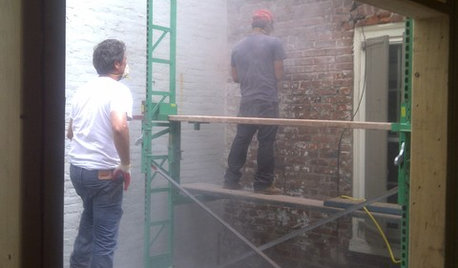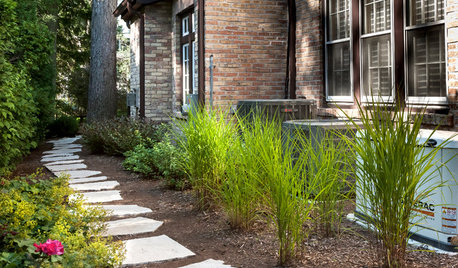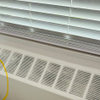Diagnosing my Mothers AC problem?
15 years ago
Related Stories

REMODELING GUIDESThe Hidden Problems in Old Houses
Before snatching up an old home, get to know what you’re in for by understanding the potential horrors that lurk below the surface
Full Story
HOUSEKEEPING10 Problems Your House May Be Trying to Show You
Ignore some of these signs and you may end up with major issues. We tell you which are normal and which are cause for concern
Full Story
MOST POPULAR5 Ways to Hide That Big Air Conditioner in Your Yard
Don’t sweat that boxy A/C unit. Here’s how to place it out of sight and out of mind
Full Story
LIFE6 Ways to Cool Off Without Air Conditioning
These methods can reduce temperatures in the home and save on energy bills
Full Story
DECORATING GUIDESFrom Queasy Colors to Killer Tables: Your Worst Decorating Mistakes
Houzzers spill the beans about buying blunders, painting problems and DIY disasters
Full Story
LIGHTINGHouse Hunting? Look Carefully at the Light
Consider windows, skylights and the sun in any potential home, lest you end up facing down the dark
Full Story
PETSSo You're Thinking About Getting a Dog
Prepare yourself for the realities of training, cost and the impact that lovable pooch might have on your house
Full Story
SMALL SPACESLife Lessons From 10 Years of Living in 84 Square Feet
Dee Williams was looking for a richer life. She found it by moving into a very tiny house
Full Story
KITCHEN DESIGNThe Cure for Houzz Envy: Kitchen Touches Anyone Can Do
Take your kitchen up a notch even if it will never reach top-of-the-line, with these cheap and easy decorating ideas
Full Story
GARDENING AND LANDSCAPING11 Ways to Make Your Sleeping Porch Even Better
Turn off that air conditioner and tune in to the delights of slumbering in the nighttime breeze
Full StoryMore Discussions








garymunson_2009
garymunson_2009
Related Professionals
Lockhart Solar Energy Systems · Maple Grove Solar Energy Systems · Moorpark Solar Energy Systems · Muscatine Solar Energy Systems · Wildomar Solar Energy Systems · Bozeman Home Automation & Home Media · Brookfield Home Automation & Home Media · Brookline Home Automation & Home Media · Plainview Home Automation & Home Media · Saint Petersburg Home Automation & Home Media · San Bruno Home Automation & Home Media · Waterford Home Automation & Home Media · Channelview Fireplaces · Fairfield Fireplaces · Mauldin Fireplacesdearjimmy65Original Author
fluffybunnysui
dearjimmy65Original Author
garymunson_2009
dearjimmy65Original Author
myneonsport
garymunson_2009
dearjimmy65Original Author
garymunson_2009
refrigman1